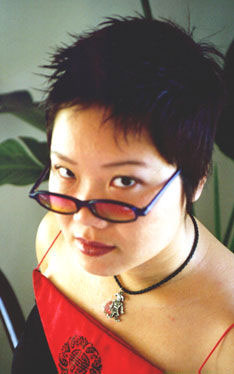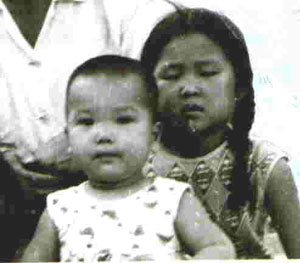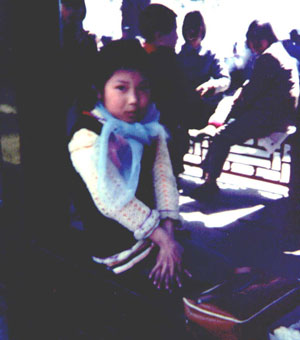Annie Wang:
Beijing’s Badgirl of Letters
by Genessee Kim
PAGE 1 OF 3
GOLDSEA | ASIAMS.NET | ASIAN AMERICAN PERSONALITIES
Annie Wang:
Beijing’s Badgirl of Letters
 y Beijing neighbors often said I was too wild, too direct, too rebellious, too uncouth,” says Annie Wang.
y Beijing neighbors often said I was too wild, too direct, too rebellious, too uncouth,” says Annie Wang.
As a 34-year-old, she’s still a shoot-from-the-hip kind of gal. Only, now, shock is no longer a liability. It’s her selling point. And if you’re curious about life as a successful Beijing authoress, just take a look at her characters.
NiuNiu, BeiBei, and LuLu are facing midlife crises. LuLu cannot break it off with her polyamourous artist lover, NiuNiu alternates between nirvana and claustrophobia as a Chinese American “returnee,” and BeiBei, the epitome of grrl power, bemoans her inability to hold down a man. In her new novel, The People’s Republic of Desire, Annie Wang looks at 30-something women in the vastly changing city of Haagan Daas and heartbreak. She shows as much enthusiasm for contemplating Starbucks and designer icecream, two of the city’s latest obsessions, as she does for dishing on relationships.
“When I was young, every time I visited other people’s homes, if they asked me if I wanted to have tea or candies, I always said, ‘yes.’ I knew a good polite girl should say no. But I just didn’t see any point in these little white lies.”
But five books in Chinese and two more in English isn’t too shabby for a self-proclaimed rebel. And Wang revels in her ability to ruffle a few feathers. Her first Chinese novel explored a relationship between a Chinese woman and a Black man. The People’s Republic of Desire, is a hearty dose of abortion, fellatio and golddigger, delivered with a nonjudgemental gusto that is perhaps the most shocking of all.
In 2001, Wang was introduced by Pantheon Books as “the youngest published author who was born and raised in China and has written in English.” But, as with most aspects of Wang’s life, not all were complimentary.
“What’s the point of laboring 10 years to write an English novel when you could have published more books in your mother tongue for starved Chinese readers and let the translators do the rest of the work?” one irked fan asked, in an unpublished essay courtesy of Wang.
| < |

|


